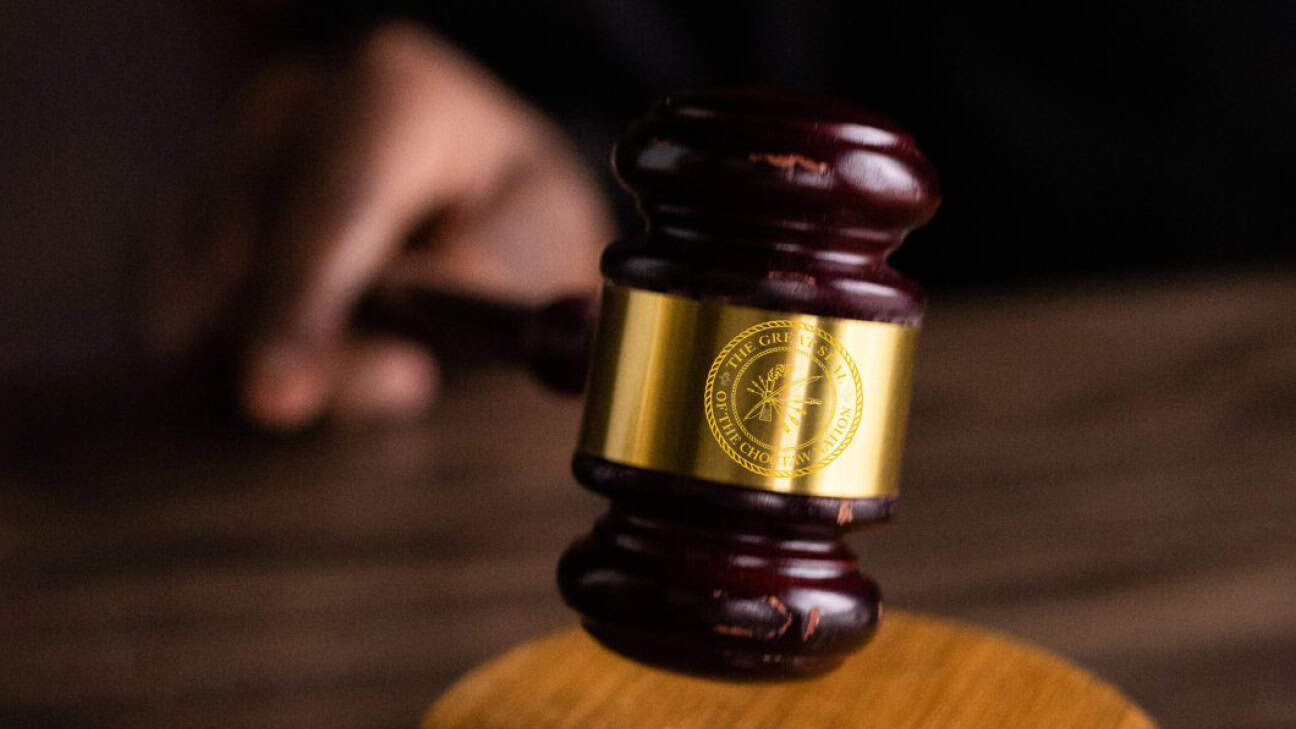
Chief Reflects on the Impact of McGirt Ruling, Five Years Later
Published July 7, 2025By Chief Gary Batton
Five Years Later: The McGirt Ruling and the Choctaw Nation
It has been five years since the July 9, 2020, ruling that the U.S. Supreme Court handed down in the case of McGirt v. Oklahoma – a generational win for Native American rights.
This ruling, handed down by the highest court in the U.S., reaffirms preexisting treaties between tribes and the federal government with firm wording that leaves no doubt as to our continuing sovereignty over our people and our lands.
“On the far end of the trail was a promise.” That’s what the highest Court declared and upheld in McGirt. It has been a long time coming since the U.S. Supreme Court handed down a ruling that we can point to that so eloquently affirms our tribal sovereignty. This was a big win for all tribal nations, in that, it recognizes the sovereignty our ancestors walked the Trail of Tears to preserve, was memorialized in treaties which remain in force to this day.
Key Legal Aspects of McGirt
The U.S. Supreme Court found that the state of Oklahoma has no jurisdiction over Muscogee (Creek) tribal citizens who commit major crimes within their tribal nation. The federal courts have exclusive jurisdiction over those crimes, and the tribe has authority over other lesser crimes.
In addition, the ruling affirms a lower court’s ruling in a separate but associated case, Carpenter v. Murphy, finding that the Muscogee (Creek) Nation is a reservation and has been one since at least 1866. Contrary to popular misconception, the Muscogee (Creek) reservation did not end with Oklahoma’s statehood in 1907.
For the Choctaw Nation, the McGirt and Sizemore decisions removed limitations to our jurisdiction that resulted in part from those prior misconceptions. It strengthened government-to-government relations, prompted expansion of tribal law enforcement, reinforced treaty obligations, and supported cultural and legal revitalization. You can see for yourself in the included illustration provided along with this blog.
The McGirt ruling reaffirms the rights of tribal nations as sovereign entities. For the Choctaw Nation, this principle was confirmed on April 1, 2021, when the Oklahoma Court of Criminal Appeals issued a ruling in Sizemore v. Oklahoma, declaring that the Choctaw Nation Reservation was never disestablished.
Together, McGirt and Sizemore affirm our rights to make our own laws to govern our people on our reservation lands, and exercise judicial authority in tribal courts, under tribal laws, with tribal prosecutors.
Our treaties with the U.S. government preserved these inherent rights of sovereignty, but as many indigenous people know, the federal and state government often disregarded and broke those treaties, which the Choctaw entered with good faith and at great expense.
Immediately following the ruling, the Choctaw Nation of Oklahoma announced it was prepared to file more than 125 cases in the District Court of the Choctaw Nation. In a historic move, the Choctaw Nation filed those 125 cases the same day to prevent any criminals from being released from custody.
Between 2020 and 2021, in the wake of the McGirt and Sizemore decisions, cases filed in Choctaw Tribal Courts surged by 569%, directly countering claims that criminals were escaping prosecution. This upward trend has continued steadily; by 2024, the Choctaw Tribal Courts processed 4,284 cases – a staggering 957% increase since 2020.
McGirt’s Impact Continues
Beyond the typical kind of trial work people expect in the tribe’s District Court, the Choctaw Nation has also established two culturally rooted courts: the Peacemakers Court and the Healing to Wellness Court (known as “Atuya,” Choctaw for “Steppingstone”).
The Peacemakers Court offers a mediation alternative drawing on Choctaw customs, traditions, and, when appropriate, religious teachings to resolve disputes. Peacemakers may consult tribal elders to guide the resolution process.
The Healing to Wellness Court (Atuya) supports individuals and families striving to overcome addiction or break cycles of child abuse and neglect. This court provides a braided-services approach, help in locating free counseling, job training, housing assistance, and cultural education to promote healing and healthy choices.
The 5th Anniversary of this landmark ruling serves as a great reminder of the outstanding work our Choctaw Nation Legal Division has done and continues to do to protect our sovereignty. I also want to express a big “Yakoke” to the Choctaw Lighthorse Police and the Department of Public Safety for the exceptional work they do every day to keep our tribal members and all the communities and towns across our reservation safe and secure.
Tribal ancestors and warriors of today have fought hard for our sovereign rights and the McGirt ruling is a large arrow in our quiver in the fight to make our own future and create a better life for our tribal members.
5 ways McGirt reaffirmed and expanded Tribal sovereignty for the benefit of Oklahoma
1. Expanded Tribal Jurisdication
Tribal governments regained significant authority to prosecute crimes committed by and against Native Americans within their territories leading to greater control over criminal justice processes and the ability to enforce its own laws and administer justice according to tribal values.
2. Strengthened Government-to-Government Relations
The ruling required the state of Oklahoma and federal agencies to coordinate more directly with tribal governments leading to more collaborative and equitable intergovernmental relationships.
3. Prompted Expansion of Tribal Law Enforcement
To meet increased jurisdictional responsibilities, tribes including the Choctaw Nation – invested in growing their law enforcement infrastructure creating more tribal police positions and improving public safety on the reservations.
4. Reenforced Treaty Obligations
McGirt reinforced treaty obligations as binding legal commitments, setting a national precedent that was used by other tribes, including the Choctaw Nation, to defend and expand their rights.
5. Supported Cultural and Legal Revitalization
As tribal nations took on more legal responsibility, many – including the Choctaw – incorporated cultural values, language, and traditional justice models into their systems deeply linking sovereignty and justice with identity.
Yakoke and God Bless!